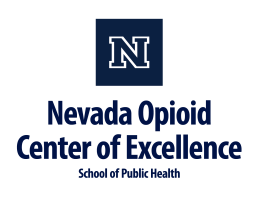News
News

The Nevada Overdose Data to Action (OD2A) team has released its February updates, including new surveillance reports, office hours, and an upcoming data training opportunity. OD2A is a CDC-funded initiative that supports state and local partners in using timely, high-quality data to inform overdose prevention and response strategies. In Nevada, the OD2A team collects, analyzes, and disseminates actionable data—such as emergency department visits, fatal and non-fatal overdoses, and related surveillance indicators—to help communities identify trends, guide resource allocation, and strengthen coordinated response efforts across the state.

In Nevada, the difference between saving a life and facing a legal consequence can often come down to a single phone call and a “good faith” effort to help. As we navigate the complexities of the opioid crisis, understanding the legal landscape is vital—not just for legal professionals, but for every member of the community. In this post, we’re breaking down two pivotal, yet seemingly contradictory, pieces of Nevada law: NRS 453C.150 (The Good Samaritan Law) and NRS 453.333 (Drug-Induced Homicide).

High Sierra AHEC is excited to share a new statewide education opportunity, made possible through a partnership grant from the National AHEC Organization (NAO) and Pri-Med. The program, Safe and Effective Pain Care: A Comprehensive Guide for Opioid Prescribing in Primary Care, offers free continuing education for healthcare providers engaged in prescribing or treating patients with opioid analgesics.

Nevada’s Overdose Data to Action (OD2A) program has released the latest nonfatal overdose data for the state, including both the monthly Drug Overdose Surveillance and Epidemiology (DOSE) reports through October 2025 and the new Quarter 3 Nevada Hospital Overdose Surveillance Report.

The Nevada Opioid Center of Excellence (NOCE) provides free, evidence-informed education, training, and resources to support Nevada’s response to the opioid crisis. Our Fall 2025 Newsletter highlights upcoming live events, new OnDemand learning opportunities, the return of the NOCE Dose podcast, and featured resources available to communities across the state.

This fall, NOCE invites you to take part in a powerful conversation about healing across generations. Empowered Pathways, a new four-part learning series with Dr. Eboni January, explores how opioid use impacts individuals and families from birth through older adulthood — and how Nevada’s communities can respond with compassion, data, and action.
